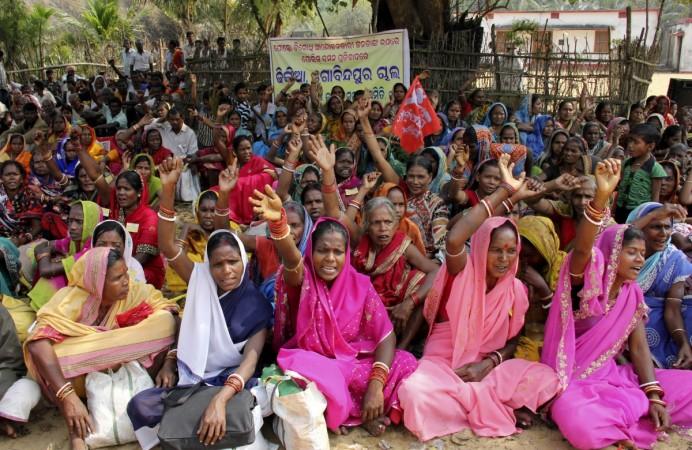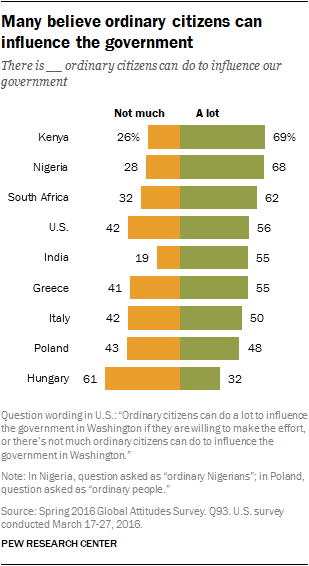
Poor quality of schools and corruption are the two biggest motivators for Indians to protest and engage in political action, according to a study conducted by Pew Research Center on global attitudes and trends.
Roughly 77 percent of people were motivated due to aforementioned factors and were ready to contact their elected representatives or participate in a demonstration. Other factors also spurning political action includes poor quality of healthcare, poverty and police misconduct.
Among the eight countries that are part of the study, poor healthcare and poverty are among the biggest causes of people's ire and motivators for political action, according to the study. These countries are India, Kenya, Nigeria, Greece, South Africa, Italy, Poland and Hungary.
The survey also highlighted that a large majority of Indians report having voted in an election, either in the past year or in the more distant past. But due to low internet penetration, fewer Indians have engaged in other forms of political participation and. Only about one in ten have engaged in any of the online forms of political participation tested.
The survey report authored by Richard Wike, Janell Fetterolf and Bridget Parker also cites a gender bias as Indian men are more likely than women to have attended a campaign event (48 percent men vs 25 percent women), participated in a volunteer organisation (25 percent vs 19 percent) and have taken part in an organised protest (31 percent vs 20 percent).
It also points to those that are younger– ages 18 to 34 (75 percent) are more likely than people 50 and older (66 percent) to take political action in response to police misconduct.
"Consistent with Indians' generally positive views of their country and leadership, they believe that ordinary citizens can influence, and benefit from, their government. Roughly two-thirds (68 percent) believe that government is run for the benefit of all people in their country," said the report.
"Only a quarter believe that the government is run for the benefit of a few groups. In addition, a majority (55 percent) of Indians say that ordinary citizens can do a lot to influence their government if they are willing to make the effort, while only about one-in-five (19 percent) say there is not much ordinary citizens can do to have an impact," it added.
In India, those who think that ordinary people are able to influence the government are more likely to say they would be very or somewhat likely to take political action, such as contact elected officials or participate in demonstrations, on a variety of political issues.
"Views about the government vary by political party in India. Supporters of the Bharatiya Janata Party (BJP), the party currently in power, are more likely than supporters of the opposition Indian National Congress party to believe that the government is run for the benefit of all people," the report said.
"Still, even among Congress supporters, roughly six-in-ten (62 percent) think that the government is run for the benefit of all," it added.






















